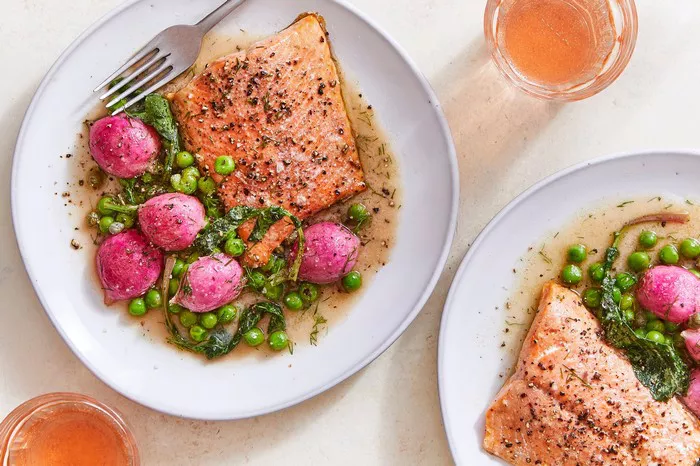Among the various dietary approaches, sugar-free diet plans have gained considerable popularity due to their potential benefits for weight management, energy levels, and long-term health. In this article, we will explore the key aspects of the best sugar-free diet plan, offering you a comprehensive guide to make informed dietary choices.
1. What is a sugar-free diet?
As the name suggests, a sugar-free diet is a diet that does not contain sugar. But that doesn’t mean you can have absolutely no sugar on this diet. You can add natural sugar, but artificial sugar is a no-no.
This means you’ll have to say goodbye to sugary foods like candy, chocolate, fizzy drinks, and even added sugar hidden in foods like mayonnaise, salad dressing, and pasta sauce. Some people follow a strict sugar-free diet, and they also avoid natural sources of sugar in vegetables and fruits. However, this is not considered healthy and may actually lead to nutrient deficiencies.
2. Does it help with weight loss?
Cutting out sugar or following a sugar-free diet is a wise move if you want to lose excess body fat. This is because the extra sugar doesn’t give you any nutrients but mainly increases your calorie intake.
When you reduce your overall sugar intake, you reduce your calorie intake, which will eventually show significant results. Choosing foods rich in natural sugars and fiber, such as fruits, whole grains, etc., will give you adequate nutrients and curb your appetite.
3. What foods can be eaten on a sugar-free diet?
- Whole grains: barley, quinoa, brown rice, amaranth, couscous, etc.
- Dark leafy vegetables: beets, spinach, kale, arugula, etc.
- Dairy products: cottage cheese, feta cheese, parmesan cheese, milk, sugar-free yogurt, etc.
- Legumes: chickpeas, black beans, soybeans, lentils, etc.
- Vegetables: green peppers, cabbage, cauliflower, broccoli, carrots, eggplant, etc.
- Whole fruits: grapefruit, blackberries, raspberries, oranges, blueberries, etc.
- Lean protein: salmon, beef, chicken, shrimp, halibut, etc.
- Healthy fats: walnuts, avocados, chia seeds, olive oil, cashews, coconut oil, etc.
4. Pros and Cons of Sugar-Free Diet Plans
Advantage:
EASY TO FOLLOW: Unlike various fad diets, this diet is extra simple and easy to follow. There’s not much you need to do or follow other than reducing your sugar intake. You don’t have to buy any supplements, fad weight loss products, or other unnecessary things. All you have to do is avoid added sugars and eat whole, unprocessed foods.
Sustainable: Whenever we tend to follow a certain way of eating, what ends up happening is that it is nearly impossible to stick to, such as a vegan diet. However, on this diet, you need to reduce your sugar intake, and after a while, your body gets used to this change and stops craving sugary foods, so it’s a sustainable eating choice.
Adaptability and flexibility: There are no strict dietary rules to follow. You can make dietary choices based not only on your lifestyle, but also on your budget. When you slowly start weaning your body off sugar, it gets used to it so it becomes your way of life!
Be realistic and practical: This diet won’t make you lose a certain amount of weight in a specific time frame, but if you choose a sugar-free diet, you are making a lifestyle choice, in which case you are excluding processed foods containing added and synthetic foods. It’s not just a diet, it’s a lifestyle choice that can help you lose weight and maintain a healthy weight in the long run!
Shortcoming:
There are definitely some downsides to a sugar-free diet. Here are some things you should pay attention to:
Challenging: Most of the time, you can figure out which processed foods have added sugar. However, this is not possible every time! Sometimes you may find it hard to determine which foods have added sugar and which don’t.
Difficult to follow: With few guidelines available, and lacking any formal meal plan, it can be difficult to maintain. There are no defined calorie intakes or serving sizes, which makes this meal plan a bit difficult to follow.
It’s a struggle at first: There’s no denying that removing sugar from your diet can be very beneficial to your health, but it may require you to plan, prepare and cook meals, remembering to avoid foods with added sugar. Sometimes this can become overwhelming and impractical for people who don’t have time to plan meals.
5. Foods to avoid:
- Baked goods such as biscuits, cakes, pastries, etc.
- Sorbets and ice cream
- Manufactured food
- Grains such as rice, pasta, bread, etc.
- Baked beans
- Juice
- Carbonated drinks
- Tacos
- Frozen entrees
- Anything with sugar in the ingredients
Conclusion
In conclusion, the best sugar-free diet plan focuses on reducing added sugars while prioritizing whole, nutrient-dense foods. By understanding the components, benefits, and strategies of a sugar-free diet plan, you can embark on a journey toward improved health and well-being.
























